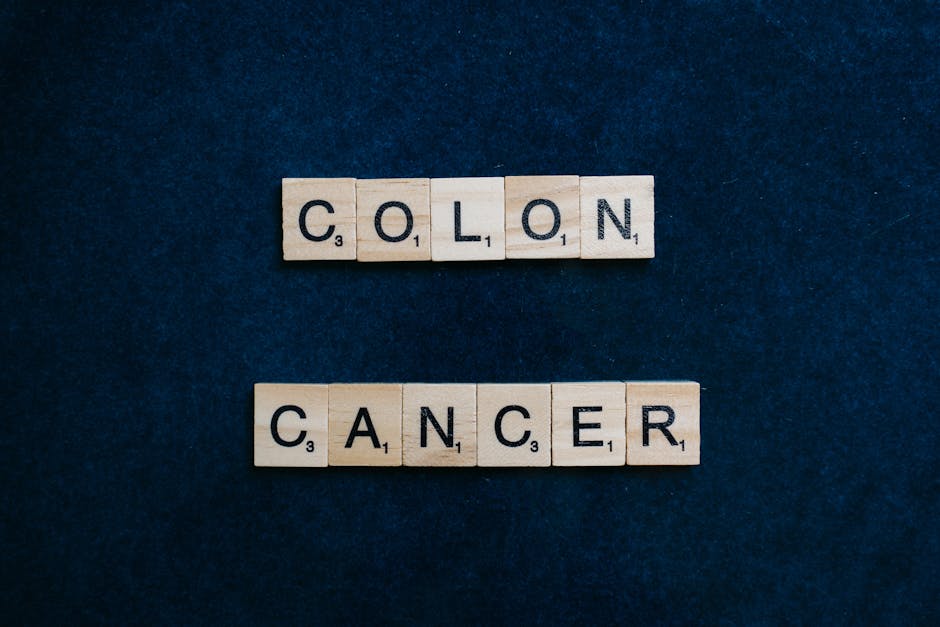Colon cancer is a serious disease that affects thousands of people every year. It is important to be aware of the common symptoms and warning signs of colon cancer in order to catch it early and increase the chances of successful treatment. While these symptoms can vary from person to person, there are some key indicators that should not be ignored.
One of the most common symptoms of colon cancer is a change in bowel habits. This can include persistent diarrhea or constipation, as well as a feeling that the bowel does not completely empty after a bowel movement. These changes in bowel habits can be a sign that something is not right and should be investigated further.
Another warning sign of colon cancer is blood in the stool. This can be either bright red blood or dark, tarry stools. Blood in the stool can be a sign of many different conditions, but it is always important to have it checked out by a healthcare professional to rule out colon cancer.
Unexplained weight loss is another symptom that should not be ignored. If you are losing weight without trying, it could be a sign that something is wrong. While weight loss can be caused by many different factors, it is always important to have it evaluated by a doctor.
Abdominal pain or cramping is another common symptom of colon cancer. This pain can be persistent and may not go away with over-the-counter pain medications. If you are experiencing abdominal pain that is not relieved by typical remedies, it is important to seek medical attention.
Fatigue and weakness are also warning signs of colon cancer. If you are feeling tired all the time, even after getting enough rest, it could be a sign that something is wrong. Fatigue can be caused by many different factors, but it is always important to have it evaluated by a healthcare professional.
In some cases, colon cancer can cause a feeling of fullness or a lump in the abdomen. This can be a sign that the tumor has grown and is causing a blockage in the colon. If you are experiencing these symptoms, it is important to seek medical attention as soon as possible.
It is important to note that these symptoms can also be caused by other conditions, such as hemorrhoids or irritable bowel syndrome. However, it is always better to be safe than sorry and have any concerning symptoms evaluated by a healthcare professional.
In conclusion, recognizing the common symptoms and warning signs of colon cancer is crucial for early detection and successful treatment. Changes in bowel habits, blood in the stool, unexplained weight loss, abdominal pain or cramping, fatigue and weakness, and a feeling of fullness or a lump in the abdomen are all symptoms that should not be ignored. While these symptoms can be caused by other conditions, it is always important to have them evaluated by a healthcare professional to rule out colon cancer. Remember, early detection is key in the fight against colon cancer.
Understanding the Risk Factors and Causes of Colon Cancer

Colon cancer is a serious health condition that affects thousands of people every year. It is important to be aware of the risk factors and causes of colon cancer in order to recognize it early and seek appropriate medical attention. By understanding these factors, individuals can take proactive steps to reduce their risk and potentially prevent the development of colon cancer.
One of the primary risk factors for colon cancer is age. As individuals get older, their risk of developing colon cancer increases. Most cases of colon cancer occur in people over the age of 50, although it can occur at any age. This is why regular screenings, such as colonoscopies, are recommended for individuals in this age group.
Another significant risk factor for colon cancer is a family history of the disease. If a close relative, such as a parent or sibling, has had colon cancer, an individual’s risk is significantly higher. In some cases, there may be a genetic component to colon cancer, and individuals with a family history may be advised to undergo genetic testing to determine their risk.
Certain lifestyle factors can also increase the risk of developing colon cancer. A diet high in red and processed meats, as well as low in fruits and vegetables, has been linked to an increased risk. Additionally, a sedentary lifestyle and obesity have been associated with a higher likelihood of developing colon cancer. By making healthy lifestyle choices, such as eating a balanced diet and engaging in regular physical activity, individuals can reduce their risk.
Other medical conditions can also increase the risk of colon cancer. Inflammatory bowel diseases, such as Crohn’s disease and ulcerative colitis, have been linked to an increased risk. Additionally, individuals with a history of certain types of polyps in the colon, known as adenomatous polyps, are at a higher risk. It is important for individuals with these conditions to work closely with their healthcare providers to monitor their health and take appropriate preventive measures.
While the exact cause of colon cancer is not fully understood, there are certain factors that may contribute to its development. One such factor is a mutation in certain genes, such as the APC gene or the TP53 gene. These mutations can disrupt the normal growth and division of cells in the colon, leading to the development of cancerous cells. Environmental factors, such as exposure to certain chemicals or radiation, may also play a role in the development of colon cancer.
In conclusion, recognizing the risk factors and causes of colon cancer is crucial for early detection and prevention. Age, family history, lifestyle choices, and certain medical conditions all contribute to an individual’s risk of developing colon cancer. By understanding these factors and taking proactive steps to reduce risk, individuals can potentially prevent the development of colon cancer or catch it at an early stage when treatment is most effective. Regular screenings and maintaining a healthy lifestyle are key in the fight against colon cancer.
Importance of Early Detection and Screening for Colon Cancer
Colon cancer is a serious and potentially life-threatening disease that affects thousands of people every year. It is important to recognize the signs and symptoms of colon cancer in order to catch it early and increase the chances of successful treatment. Early detection and screening for colon cancer can save lives, making it crucial for individuals to be aware of the importance of regular check-ups and screenings.
One of the main reasons why early detection is so important is because colon cancer often does not present any symptoms in its early stages. This means that individuals may have the disease without even realizing it. By the time symptoms do appear, the cancer may have already spread to other parts of the body, making it more difficult to treat. Regular screenings can help catch colon cancer before it has a chance to progress, increasing the chances of successful treatment and survival.
Screenings for colon cancer typically involve a colonoscopy, which is a procedure that allows doctors to examine the inside of the colon for any abnormalities or signs of cancer. During a colonoscopy, a long, flexible tube with a camera on the end is inserted into the rectum and guided through the colon. This allows doctors to visually inspect the colon and take tissue samples if necessary. The procedure is usually done under sedation, so patients do not experience any pain or discomfort.
It is recommended that individuals begin regular colon cancer screenings at the age of 50, or earlier if they have a family history of the disease or other risk factors. Regular screenings can help detect colon cancer in its early stages, when it is most treatable. If a colonoscopy reveals any abnormalities or signs of cancer, further testing may be done to determine the extent of the disease and develop a treatment plan.
In addition to regular screenings, it is also important to be aware of the signs and symptoms of colon cancer. While colon cancer may not present any symptoms in its early stages, there are certain warning signs that individuals should be aware of. These include changes in bowel habits, such as persistent diarrhea or constipation, blood in the stool, abdominal pain or cramping, unexplained weight loss, and fatigue. If any of these symptoms persist for more than a few days, it is important to see a doctor for further evaluation.
It is important to note that these symptoms can also be caused by other, less serious conditions. However, it is always better to be safe than sorry when it comes to your health. If you are experiencing any of these symptoms, it is important to see a doctor for further evaluation. They can perform the necessary tests to determine the cause of your symptoms and develop an appropriate treatment plan if necessary.
In conclusion, early detection and screening for colon cancer are crucial for increasing the chances of successful treatment and survival. Regular screenings can help catch colon cancer before it has a chance to progress, while being aware of the signs and symptoms can help individuals seek medical attention if necessary. By taking these steps, individuals can play an active role in their own health and well-being, and potentially save their own lives.










